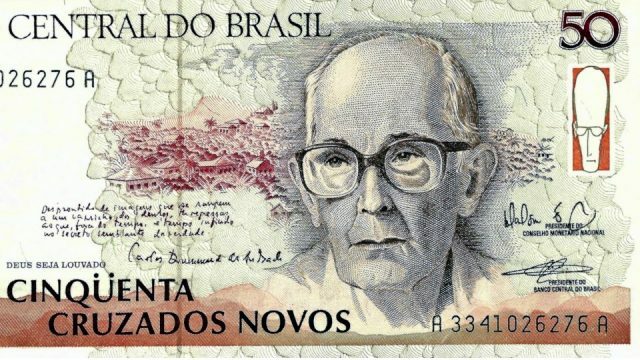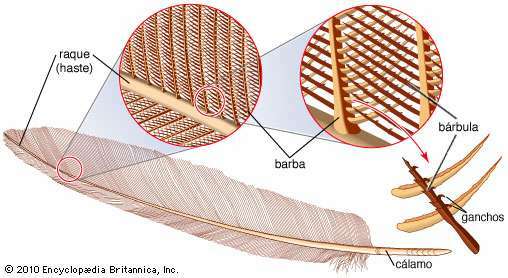Carlos Drummond de Andrade, labeled as the “Great universal poet of Brazil” by Otto Lara Resende from Minas Gerais, is considered one of the most important national poets of the 20th century.
Pathfinder of the so-called poetry of 30, through the publication of the work "Some poetry", falls under the second generation modernist.
The Brazilian poet, writer, storyteller and chronicler from Minas Gerais left an important legacy for national literature.
Index
- Biography
- Style Features
- Main works and books
- Poems by Carlos Drummond de Andrade
- Some curiosities
Biography
Carlos Drummond de Andrade was born on October 31, 1902. Born in Itabira de Mato Dentro, in the interior of Minas Gerais, is the son of rural landowners, Carlos de Paula Andrade and Julieta Augusta Drummond de Andrade.
At the age of 13-14, in 1916, he entered the boarding school in Belo Horizonte, but soon fell ill and had to return to his hometown, where he had private lessons. In 1918 he returned to his studies at another boarding school, now in Nova Friburgo (RJ).
In the 1920s, in 1921, he began publishing articles in the Diário de Minas. A year later, in 1922, he was awarded 50 thousand réis for winning the contest for the soap opera from Minas Gerais with the short story “Joaquim do roof”.
Soon after, in 1923, he enrolled in the Pharmacy course at the School of Dentistry and Pharmacy, in Belo Horizonte, which he graduated but never served.
In 1925, he founded “The magazine”, becoming the vehicle of the Mineiro Modernism.
Later that year, he married Dolores Dutra de Morais, wife with whom he had two children: Carlos Flávio (1926), unfortunately dead after half an hour of life, and Maria Julieta Drummond de Andrade (1928-1987).
He ventured into teaching in 1926, teaching geography and Portuguese at the Ginásio Sul-Americano de Itabira.
He then returned to Belo Horizonte, where he worked as editor-in-chief of Diário de Minas.
He continued his work as a writer, publishing, in 1930, his first book – “Some Poetry”.
Throughout much of his life he served in the civil service, and retired as Section Chief of DPHAN (Directorate of National Historical and Artistic Heritage), after 35 years of public service.
At the height of his 80 years of age, in 1982, he was awarded the title of “Doctor Honoris Causa” by the Federal University of Rio Grande do Norte (UFRN).
Five years later, on August 17, 1987 (a few days after his daughter's death), Carlos Drummond de Andrade died in Rio de Janeiro. However, his works are still immortal.
Style Features
Entitled as a poet of the second generation modernist, Carlos Drummond de Andrade, one of the greatest figures in the 1930s, he stood out as a poet.
Despite writing, Tales and chronicles, it was yours poetry that conquered the heart of the current society.
- Free Online Inclusive Education Course
- Free Online Toy Library and Learning Course
- Free Online Math Games Course in Early Childhood Education
- Free Online Pedagogical Cultural Workshops Course
The artist produced texts that questioned human existence, the feeling of being social, highlighting social, philosophical, religious and loving concerns.
With a hint of irony, light traces of pessimism and humor when reflecting on life and analysis of everyday life, he presented existential portraits, converting them into poems.
Drummond was also a translator of great names in literature, such as Balzac, Federico Garcia Lorca and Molière.
Main works and books
- Some Poetry (1930)
- Marsh of Souls (1934)
- Feeling of the World (1940)
- Joseph (1942)
- The People's Rose (1945)
- New Poems (1948)
- Clear Enigma (1951)
- Apprentice's Tales (1951)
- Air Farmer (1954)
- Pocket Viola (1955)
- The Clean Past Life (1959)
- Scholarship and life (1962)
- Poetic Anthology (1962)
- Lesson of Things (1962)
- Rocking Chair (1966)
- Versiprosa (1967)
- Boitempo (1968)
- The Passion Measure (1980)
- Dress Case (1983)
- Mouth of Moonlight (1984)
- Body (1984)
- Love is learned by loving (1985)
- From news and not news, the chronicle is made (1987)
- Wandering Poetry (1988)
Read too: 20 sentences by Carlos Drummond de Andrade, the Brazilian writer and poet
Poems by Carlos Drummond de Andrade
Check out three poems by Carlos Drummond de Andrade:
In the middle of the way there was a stone
There was a stone in the middle of the way
had a stone
In the middle of the way there was a stone.
I will never forget this event
In the life of my retinas so tired.
I'll never forget that halfway
had a stone
There was a stone in the middle of the way
In the middle of the way there was a stone(Midway, published in the Revista de Antropofagia de São Paulo).
João loved Teresa who loved Raimundo
who loved Maria who loved Joaquim who loved Lili,
who didn't love anyone.
João went to the United States, Teresa to the convent,
Raimundo died of disaster, Maria was left to aunt,
Joaquim committed suicide and Lili married J. Pinto Fernandes
that had not entered history.(Gang)
love the lost
leaves confused
this heart.nothing can forget
against the nonsense
appeal of the No.the tangible things
become insensitive
to the palm of your hand.But things ended,
much more than beautiful,
those will stay.(Memory)
See more: Ten poems by Carlos Drummond de Andrade
Some curiosities
Between 1988 and 1990, Drummond's face was stamped on the notes of fifty cruzados.

the seven-faced poet (2002) is a documentary that narrates the author's life and work.
An important name in Brazilian culture, Carlos Drummond de Andrade is considered one of the most important Brazilian poets of the 20th century. Among the tributes to him are the statue “two poets”, in Porto Alegre (RS), and also the famous “The Thinker”, located on Copacabana Beach, in the Rio de Janeiro.

You may also like:
- Manoel de Barros
- José Saramago
- Rachel de Queiroz
- Fernando Pessoa
The password has been sent to your email.



